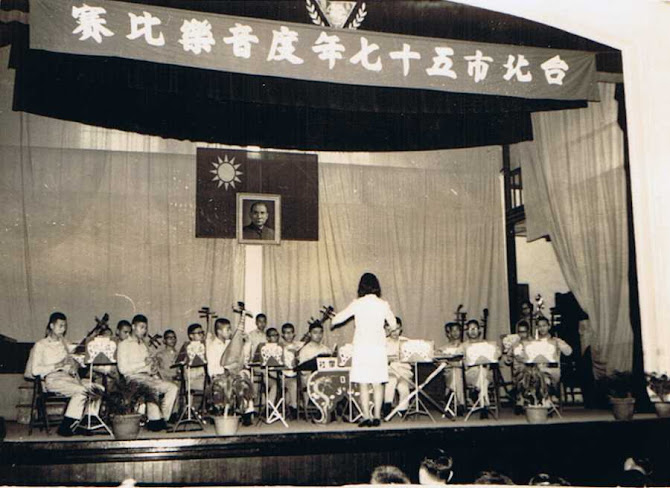
This electric shaver has been with me in the past 23 years. Almost everyday in the morning, it kissed me good bye on my beard growing area and made me ready to work. Its brand name is Mr. Jelmi of a Hitachi product. Loyally it served me for about 22 years till 2006 when its blades became too blunt to do a good job. Despite this fact, its heart is still energetic when the power is turned on.
During its 22 year long service, it also served my son, Chenny, when he found his beard began to ruin his appearance in 2005. I happily passed this shaver down to my next generation wondering how much longer time it will serve for Chenny. However, within a couple of months, he returned it to me saying the blades could not effectively cut his beard any more. Indeed it couldn’t do a reasonably good job for him because his rather softer beard required a new shaver with sharp blades. So I got it back to continue its daily task for me till it really had to be discharged from service in 2006 when I was also forced to retire due to health problem in the same year. What a coincidence! It is now sitting on the corner of the desk watching me writing its story.
It was purchased when I stopped by Hong Kong to visit a printing ink supplier on a business trip in 1984. Hong Kong was called the shopper’s paradise by Taiwanese in 80’s and 90’s because its free port status. All the commodities imported were free of tariff. My first overseas business trip was to Singapore to visit a printing plate manufacturer in 1984. According to our itinerary, we would be visiting another supplier in Hong Kong on our way home from Singapore, so we planned to save as much money as possible for shopping in Hong Kong.
 In a shop in the busiest area in Hong Kong, my attention was also drawn by this Casio pocket calculator. It is as slim as 2mm thick, and it was at an amazing cheap price compared to the price sold in Taiwan. So I bought about 20 pieces of it for giving away to my colleagues and friends as gift.
In a shop in the busiest area in Hong Kong, my attention was also drawn by this Casio pocket calculator. It is as slim as 2mm thick, and it was at an amazing cheap price compared to the price sold in Taiwan. So I bought about 20 pieces of it for giving away to my colleagues and friends as gift. I kept one for myself. It helped me sorting out numbers in my daily customer service responsibility till 1992 when I emigrated to New Zealand. And it carried on its service for me in the new land for another 6 years till 1998 when the company, which I worked for, purchased Microsoft Office Suite, then I gradually gave the number matters to the Excel program rather than this pocket calculator. Although it is no longer needed, it is still kept carefully by me in my working bag. And amazingly, its solar powering is still working well.
I kept one for myself. It helped me sorting out numbers in my daily customer service responsibility till 1992 when I emigrated to New Zealand. And it carried on its service for me in the new land for another 6 years till 1998 when the company, which I worked for, purchased Microsoft Office Suite, then I gradually gave the number matters to the Excel program rather than this pocket calculator. Although it is no longer needed, it is still kept carefully by me in my working bag. And amazingly, its solar powering is still working well. This is the lap top computer which my ex-colleague calls it “the never dying thing”. Why is such a unique name given to it? Because my friend, being very knowledgeable on electronic products, has anticipated frequent technical problems from it since it was turning to be 4 years old in 2005. Quite often he would ask me how my lap top was working for me, and all the answer he got was always good. So once in the phone conversation, this “the never dying thing” slipped out of his mouth when he was told that it was running well.
This is the lap top computer which my ex-colleague calls it “the never dying thing”. Why is such a unique name given to it? Because my friend, being very knowledgeable on electronic products, has anticipated frequent technical problems from it since it was turning to be 4 years old in 2005. Quite often he would ask me how my lap top was working for me, and all the answer he got was always good. So once in the phone conversation, this “the never dying thing” slipped out of his mouth when he was told that it was running well.It was a second-hand goods purchased in 2003 when I was just employed as program adviser helping new immigrants to learn about New Zealand. This job required me to have a computer for communication with head office from home. So during the period from 2003 to 2006, this little thing had helped me recording notes about each student on my list and handling e-mail exchanges with the head office, students and other colleagues.
Sometimes I felt that it helped me to make a living and enabled me to send my youngest child into university. Now I use it to contact friends in the world by e-mails, know what’s happening from the web, do research on Buddhism studies and so on.
I hope this little thing will really be a “never dying thing” as my friend calls it.































